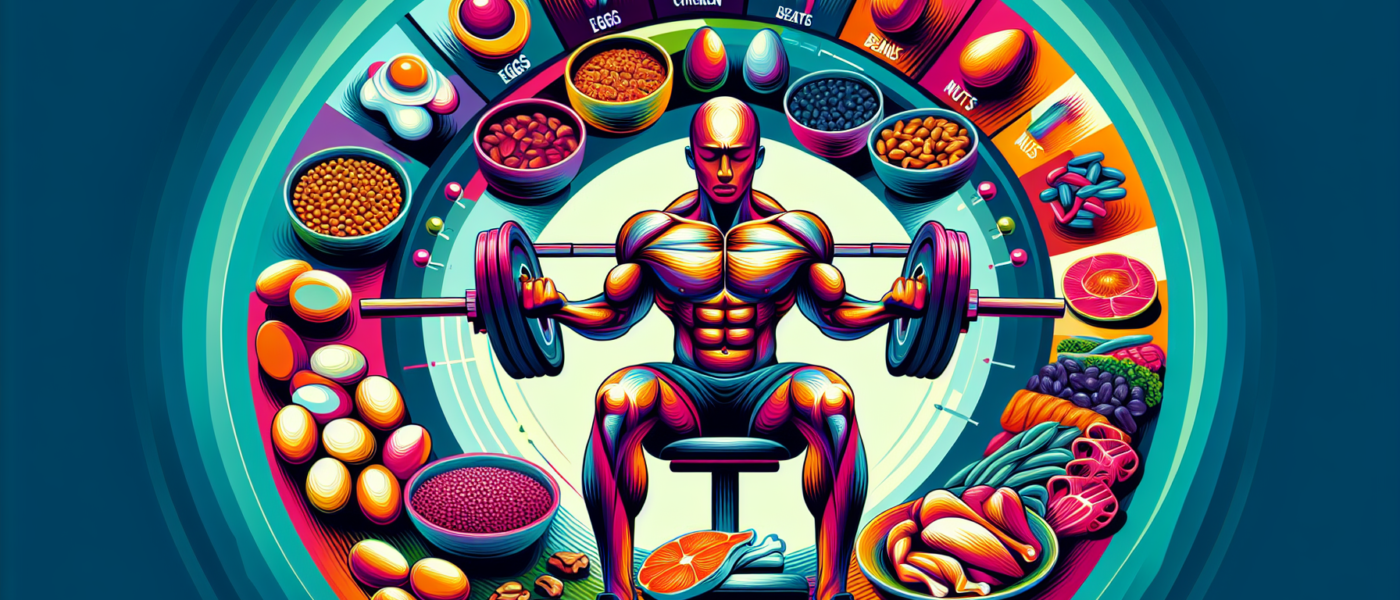The Role of Protein in Muscle Maintenance
Key Takeaways
Understanding the crucial role of protein in muscle maintenance can help individuals make informed dietary and fitness decisions to support muscle health and overall well-being. Protein is fundamental not only for muscle repair and growth but also for metabolic functions and energy levels.
Protein is often touted as the building block of life, playing a pivotal role in numerous physiological functions. Among its many roles, one of the most critical is in the maintenance and development of muscle tissue. This article explores the complex interactions between protein and muscle, delving into how protein intake affects muscle repair, growth, and overall maintenance.
Understanding Muscle Composition and Function
Muscles are composed primarily of protein structures known as myofibrils. These myofibrils are further broken down into sarcomeres, which contain actin and myosin filaments. The contraction and relaxation of these filaments enable muscles to produce movement. Muscles are metabolically active tissues, constantly undergoing cycles of breakdown (catabolism) and synthesis (anabolism).
The Importance of Protein in Muscle Repair
Physical activity, particularly resistance training and high-intensity workouts, induces micro-damage to muscle fibers. This damage isn’t detrimental but rather stimulates a repair process essential for muscle maintenance and growth. Protein provides the necessary amino acids that serve as building blocks during this repair process. Without adequate protein intake, the body cannot efficiently repair and rebuild muscle tissue, leading to decreased muscle mass and function over time.
Role of Essential Amino Acids
Amino acids are the building blocks of proteins, with nine being classified as essential because the body cannot synthesize them and must obtain them through the diet. These essential amino acids (EAAs) include leucine, isoleucine, and valine, collectively known as branched-chain amino acids (BCAAs). Leucine, in particular, is known to stimulate muscle protein synthesis more significantly than other amino acids. Thus, consuming foods high in EAAs, such as meat, dairy products, and certain plant-based sources like quinoa and soy, is crucial for muscle maintenance.
Daily Protein Requirements
The recommended dietary allowance (RDA) for protein varies depending on several factors, including age, sex, and physical activity level. For the average adult, the RDA is about 0.8 grams of protein per kilogram of body weight. However, for athletes or individuals engaged in regular strenuous activity, protein requirements can be significantly higher. Studies suggest that consuming between 1.2 to 2.0 grams of protein per kilogram of body weight is beneficial for those looking to maintain or build muscle mass.
Timing and Distribution of Protein Intake
Not only is the amount of protein important, but the timing and distribution of protein intake throughout the day also play a crucial role in muscle maintenance. Research indicates that evenly distributing protein intake across meals can maximize muscle protein synthesis. For example, rather than consuming a large amount of protein at dinner, spreading it evenly across breakfast, lunch, and dinner can be more effective for muscle repair and growth. Additionally, consuming protein shortly after exercise can further enhance muscle protein synthesis, aiding in faster recovery and adaptation.
Protein Quality and Bioavailability
All proteins are not created equal. Protein quality is determined by its amino acid profile and digestibility. High-quality proteins contain all essential amino acids in appropriate proportions. Animal-based proteins, such as those found in eggs, milk, and meat, are considered complete proteins as they provide all essential amino acids needed by the body. Plant-based proteins, on the other hand, may lack one or more essential amino acids but can still contribute significantly to muscle maintenance when consumed in a varied diet. Bioavailability refers to how well and how quickly the body can use the protein. For instance, whey protein, a byproduct of cheese production, is known for its high bioavailability and rapid digestion, making it a popular choice among athletes.
Supplementation: Necessity or Convenience?
Protein supplements, such as whey, casein, and plant-based protein powders, have become increasingly popular, especially among individuals engaged in bodybuilding and intense physical activities. While whole food sources of protein are generally preferred due to their additional nutritional benefits, supplements can be a convenient and effective way to meet daily protein requirements. For example, whey protein is particularly rich in BCAAs and is quickly absorbed, making it an excellent post-workout supplement to support muscle recovery.
Special Considerations for Different Populations
Protein needs can vary significantly among different populations. For older adults, maintaining muscle mass becomes increasingly important as muscle loss (sarcopenia) is common with aging. Higher protein intakes, along with resistance training, can help mitigate sarcopenia and improve quality of life. For vegetarians and vegans, who might find it challenging to meet protein needs through plant-based sources alone, incorporating a variety of protein-rich foods and possibly supplements is essential for maintaining muscle health.
Conclusion
In summary, protein is indispensable for muscle maintenance, playing a crucial role in muscle repair, growth, and overall function. Adequate protein intake, balanced distribution throughout the day, and the inclusion of high-quality protein sources are key strategies for supporting muscle health. Whether through whole foods or supplements, meeting protein needs can significantly contribute to improved physical performance, recovery, and long-term muscle integrity. Understanding and implementing these principles can help individuals achieve their fitness goals and maintain muscle mass as they age.

